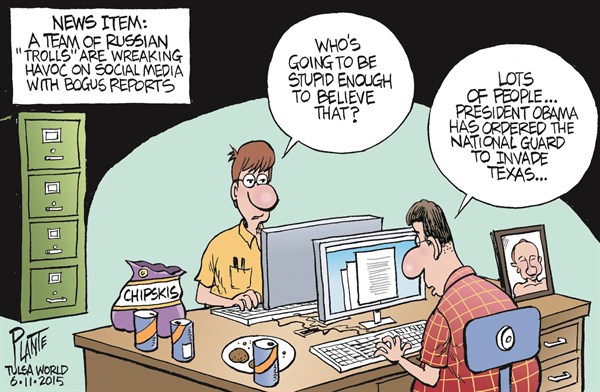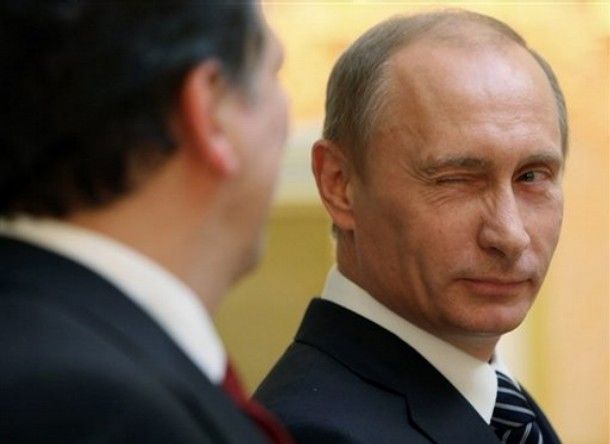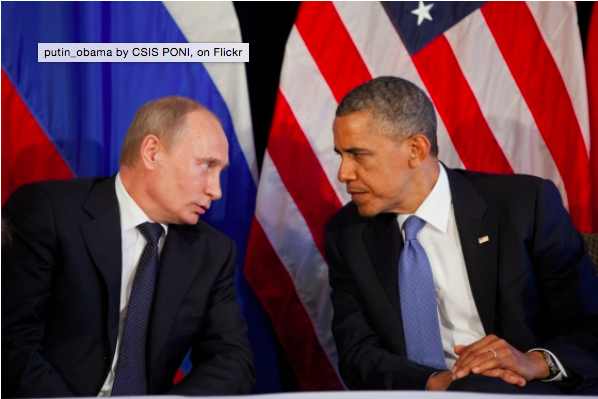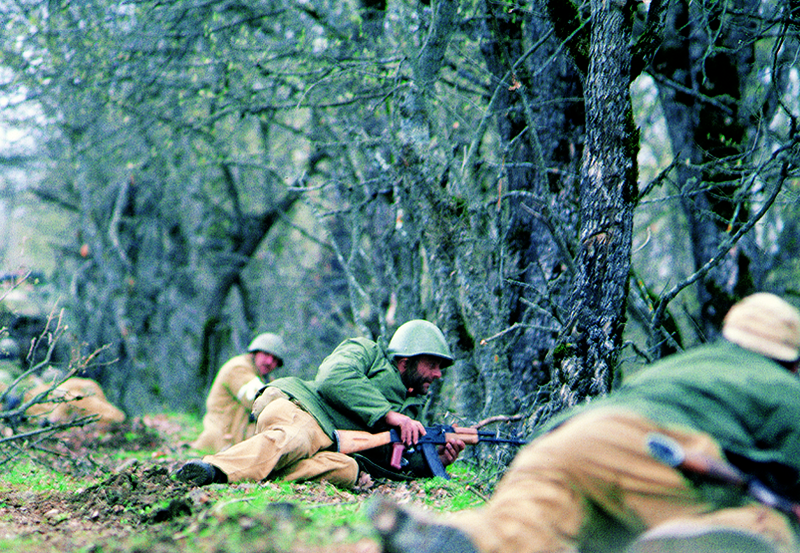In late 2009, RT (formerly Russia Today), one of Russia’s largest news agencies, unveiled a bold new advertising campaign. Featuring an image of a videocamera superimposed onto an AK-47 assault rifle, the caption read: “Which is the more powerful weapon?”
The campaign slogan, “Question More,” quickly became the motto for RT and is now displayed prominently on its website. It is also symptomatic of a relevant and disturbing dezinformatziya campaign that is presently being propagated by the Russian state.
To preempt: there is nothing wrong with questioning news. In fact, it is both crucial and commendable to do so. One must be able to recognize bias and decipher rhetoric. One must not take everything at face value.
However, it is equally as important that the questioning of news does not impede one’s ability to distinguish fact from fiction.
If one loses the ability to recognize the truths or falsities behind a story, then news ultimately loses both its relevance and its value.
This is the crux of the Kremlin’s influential disinformation campaign, broadly described by many as a “war of information.” However, Atlantic Council of Canada Program Editor Colin McEwen asserts that this designation does not accurately apply to Russia’s attempts to discredit the news. Instead, he proposes a more fitting phrase: a “war on information.”
These must be understood as fundamentally different concepts. Both Russia and the West are bitterly locked in a “war of information” in an attempt to promote their own cause and delegitimize their opponent’s; however, the “war on information,” the devaluation of news, is a uniquely Russian effort, and perhaps doubly as dangerous.
Possibly nothing is more emblematic of these efforts than RT itself. Sleek and expansive, with over 1.5 million YouTube subscribers, the news agency is reminiscent of a Russian BBC. The most popular news channel on YouTube, RT claims to provide viewers with “an alternate perspective on global events” and “acquaint [them] with the Russian viewpoint.”

RT’s bias in its news coverage is unmistakable. Provided with an annual budget of over USD $300 million budget by the Russian Ministry of Communications and Mass Media, its headlines often indicate a pro-Kremlin stance or an anti-Western one.
A cursory examination of RT’s homepage on June 13th would yield the following headlines:
“American empire imploding both at home & abroad.”
“Prostitution ban won’t hit England, ‘too many politicians’ visit sex workers.”
“West rewrites history to alienate Russia – Kremlin administratio
n head.”
When examining a state-funded news source, bias is often inevitable and expected. And as RT regularly expresses, western news networks are not free from slanted reporting either. They do have a point: in this bitter war of information, bias exists on all sides and the reader must be aware of it.
However, in the case of Russia’s news networks, it is not simply a matter of slanted reporting; there is a much darker intent at play here. When Peter Pomerantsev, author of Nothing Is True and Everything Is Possible, visited the managing editor of RT last year, he was told that “there is no such thing as objective reporting.”
This statement reveals the essence of Russia’s “war on information:” that the truth is malleable and can be easily molded by those with authority. By encouraging readers to question everything that
they read, RT and other Kremlin-funded news networks effectively quash the validity of fact and promote a vicious skepticism that fosters a collective political apathy.
“The aim of this new propaganda is not to convince or persuade,” explain Pomerantsev and Michael Weiss in a special report for The Interpreter, “but to keep the viewer hooked and distracted, passive and paranoid, rather than agitated to action.”
A healthy dose of skepticism promotes critical thought, but questioning news simply for the sake of questioning it removes its value altogether.
RT’s “Question More” campaign is not the means to an end, but an end in and of itself.
The Kremlin’s main strategy for prosecuting this “war on informa
tion” is to flood news networks and social media with what New Yorker editor David Remnick terms “what-aboutism.” This often takes the form of encouraging conspiracy theories, employing online troll armies, and spurring alarmism at a disturbing degree.
RT’s YouTube channel is inundated with a plethora of conspiracy theories. Another channel, PropagandaTruth, has compiled a playlist of 53 videos from various RT channels entitled “RT 9/11 Truth Videos.” Featuring titles such as “Awkward questions about 9/11,” “Are the 9/11 conspirators right?,” and “‘Stop the 9/11 cover-up,’” the compilation promotes a conspiratorial version of events in which the United States government is responsible for the most horrifying attack on American soil in its history.
In addition to the 9/11 “truth” videos, the RT channel hosts several videos denying the effects of climate change, and their website has published interviews with several infamous climate change skeptics such as Piers Corbyn, Patrick Michaels, and Lord Christopher Monckton.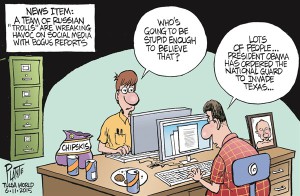
On many occasions RT has also interviewed Alex Jones, whom the New Yorker describes as “America’s leading (and proudest) conspiracy theorist,” and Karen Hudes, a self-described whistleblower who believes that the Vatican is controlled by the “black pope,” a non-human “second species” with an extra-large skull.
It is this type of alarmist and falsified rhetoric which has led to the on-air resignations of a number of RT anchors, including Liz Wahl and Sara Firth.
A 2014 poll of 1,600 adults across Russia revealed a shocking result: 45% of Russians believe in the existence of a New World Order, a politically totalitarian cabal which has supposedly achieved clandestine world domination, while a mere 32% definitively opposed this theory. 23% expressed that they were uncertain; however, to quote RFE/RL blogger Brian Whitmore, “I’m sorry, if you are not sure whether or not there is a secret government that controls the world you’re just as delusional as the 45% who are.”
In early 2012, Анонимус, a hacktivist collective which labels itself as the Russian branch of Anonymous, leaked evidence that the Russian Federal Security Service has been employing web brigades of Internet trolls in order to flood the web with propagandistic messages and falsified news bulletins. Further independen
t investigations revealed that these trolls are being paid tens of thousands of pounds to meet strict quotas, including posting over 50 times per day from 10 fake Twitter accounts and six fake Facebook accounts.
Twenty years ago, the Russian Internet was dominated by liberal and democratic thinkers. Today, the Kremlin’s blatant assault on the truth has not just made the Internet an antagonistic space for Russian dissidents, but a largely useless one. This weaponization of information has caused many Russians to self-censor their Internet presences, as there is largely no longer any reason to post an opinion, or listen to anyone else’s.
To apply American author John Naisbitt’s statement to Russia’s Orwellian war on information, “we are drowning in information but starved for knowledge.”

